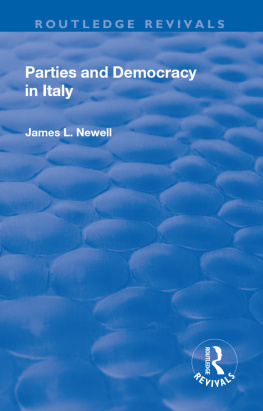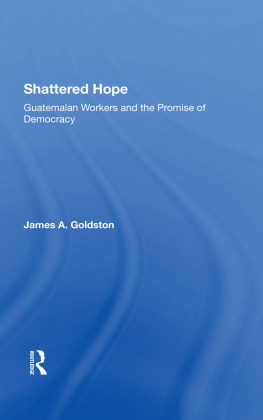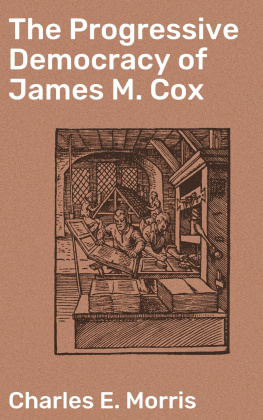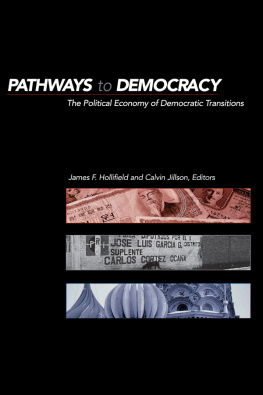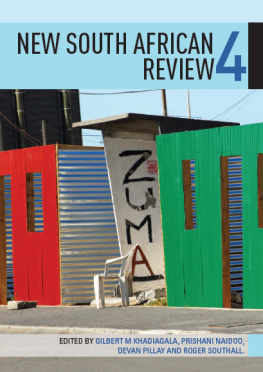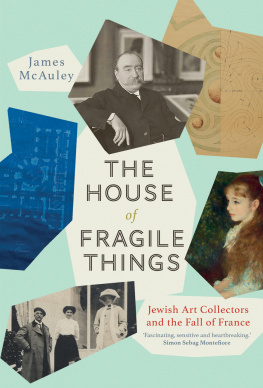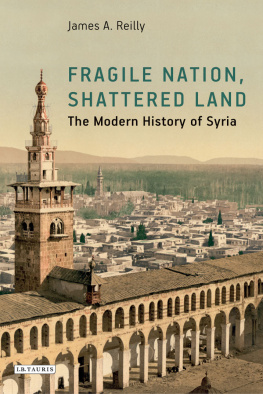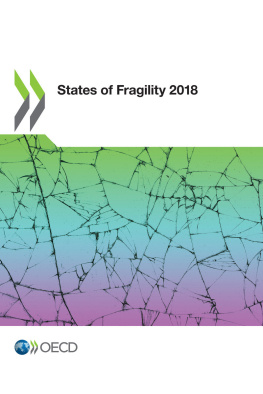James L. Leloudis - Fragile Democracy
Here you can read online James L. Leloudis - Fragile Democracy full text of the book (entire story) in english for free. Download pdf and epub, get meaning, cover and reviews about this ebook. year: 2020, publisher: The University of North Carolina Press, genre: Politics. Description of the work, (preface) as well as reviews are available. Best literature library LitArk.com created for fans of good reading and offers a wide selection of genres:
Romance novel
Science fiction
Adventure
Detective
Science
History
Home and family
Prose
Art
Politics
Computer
Non-fiction
Religion
Business
Children
Humor
Choose a favorite category and find really read worthwhile books. Enjoy immersion in the world of imagination, feel the emotions of the characters or learn something new for yourself, make an fascinating discovery.

- Book:Fragile Democracy
- Author:
- Publisher:The University of North Carolina Press
- Genre:
- Year:2020
- Rating:5 / 5
- Favourites:Add to favourites
- Your mark:
- 100
- 1
- 2
- 3
- 4
- 5
Fragile Democracy: summary, description and annotation
We offer to read an annotation, description, summary or preface (depends on what the author of the book "Fragile Democracy" wrote himself). If you haven't found the necessary information about the book — write in the comments, we will try to find it.
Fragile Democracy — read online for free the complete book (whole text) full work
Below is the text of the book, divided by pages. System saving the place of the last page read, allows you to conveniently read the book "Fragile Democracy" online for free, without having to search again every time where you left off. Put a bookmark, and you can go to the page where you finished reading at any time.
Font size:
Interval:
Bookmark:
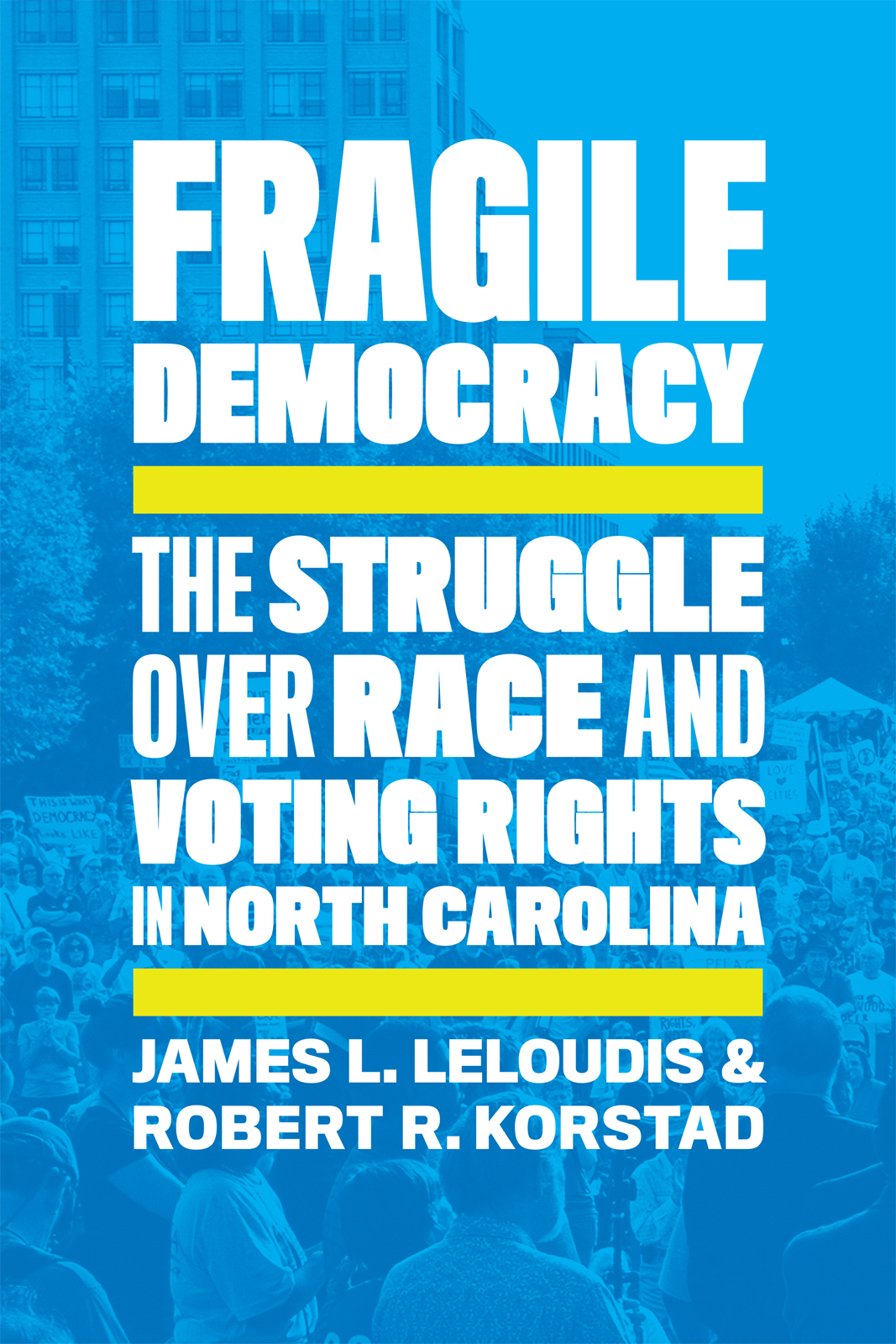
Fragile Democracy
THE STRUGGLE OVER RACE AND VOTING RIGHTS IN NORTH CAROLINA
JAMES L. LELOUDIS & ROBERT R. KORSTAD
THE UNIVERSITY OF NORTH CAROLINA PRESS
Chapel Hill
Publication of this book was supported in part by a generous gift from MARY LOU and JIM BABB.
2020 The University of North Carolina Press
All rights reserved
Manufactured in the United States of America
Set in Arnhem, Klavika, and Champion by Tseng Information Systems, Inc.
The University of North Carolina Press has been a member of the Green Press Initiative since 2003.
Cover illustration: Mountain Moral Monday protest in Asheville, North Carolina. Courtesy Wikimedia Commons.
Library of Congress Cataloging-in-Publication Data
Names: Leloudis, James L., author. | Korstad, Robert Rodgers, author.
Title: Fragile democracy : the struggle over race and voting rights in North Carolina / James L. Leloudis and Robert R. Korstad.
Description: Chapel Hill : The University of North Carolina Press, 2020. | Includes bibliographical references and index.
Identifiers: LCCN 2020015370 | ISBN 9781469660394 (cloth : alk. paper) | ISBN 9781469661391 (paperback : alk. paper) | ISBN 9781469660400 (ebook)
Subjects: LCSH: African AmericansSuffrageNorth Carolina. | SuffrageNorth Carolina. | North CarolinaPolitics and government18651950. | North CarolinaPolitics and government1951 | North CarolinaRace relations.
Classification: LCC JK1929.N8 L45 2020 | DDC 324.6/2089960730756dc23
LC record available at https://lccn.loc.gov/2020015370
For generations of North Carolinians who held America accountable to its democratic aspirations
Fragile Democracy

North Carolina regions and counties
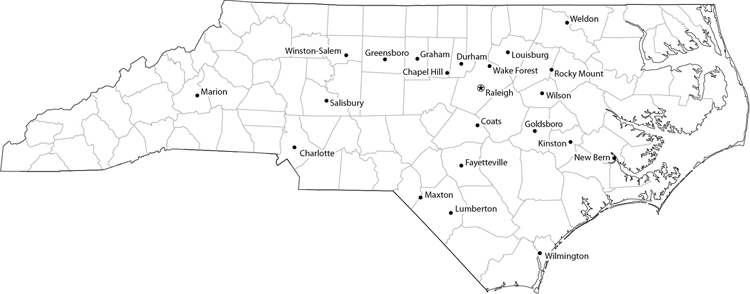
North Carolina towns and cities referenced in text
America is at war with itself over the right to vote, or, more precisely, over the question of who gets to exercise that right and under what circumstances. Conservatives speak in ominous tones of America the vulnerable, warning that voter fraud has become so widespread that it threatens public trust in elected government. They insist that lawmakers act at once to reverse the damage by policing voter registration more vigorously and implementing new security measures such as photo ID requirements for access to the ballot box. Progressives counter that electoral fraud is exceedingly rare and that when voting irregularities do occur, they usually involve mistakes made by election officials rather than individual voters wrongdoing. From this perspective, efforts to change the ways we govern elections are, at best, a solution in search of a problem. At worst, they constitute a thinly veiled campaign to shrink the electorate and restrict some citizens right to cast a free and fair ballot.
Over the last decade, North Carolina has been a battleground for this debate. In 2010, riding a tide of voter discontent, Republicans gained control of both houses of North Carolina's General Assembly. The completion of the decennial census in the same year gave them the opportunity to redraw legislative districts in ways that produced a Republican supermajority in the next election. Then, in 2013, the U.S. Supreme Court, ruling in the landmark Shelby County v. Holder case, struck down section 5 of the 1965 Voting Rights Act. That section required federal approval of changes to election law in jurisdictions with a history of racial discrimination. It was critical to protecting the voting rights of minority citizens; in its absence, states had an opening to reintroduce discriminatory policies like those that the Voting Rights Act had been meant to abolish. Within a month of the Shelby decision, Republican lawmakers in North Carolina took advantage of that opportunity. They passed House Bill (HB) 589, the nation's most comprehensive revision of election law. The legislation required that voters provide photo ID at the polls, shortened the period for early voting, and ended same-day voter registration and out-of-precinct votingall of which had a disproportionate impact on minority, low-income, and elderly electors.
Opposition to these changes was vocal and well organized. It found voice through what came to be known as the Moral Monday movement, named for the weekly gatherings of protestors at the legislative building in Raleigh. Reverend William J. Barber II, a charismatic Pentecostal minister from Goldsboro and president of the North Carolina Conference of the NAACP, spearheaded the movement. For nearly a decade, he had led the North Carolina People's Assembly, an ecumenical and multiracial coalition of organizations that pressured lawmakersDemocrats as well as Republicansto act on a variety of social welfare issues, from affordable housing and a living wage to criminal justice reform and improvements in health care and education. The Moral Monday movement brought tens of thousands of new participants to this campaign. They marched in Raleigh and in cities across the state to express their opposition to HB 589 and the Republican legislature's policy agenda, which included budget cuts for public education, stricter limits on unemployment benefits, elimination of the state's Earned Income Tax Credit for low-wage workers, refusal of federal funds for Medicaid expansion, and reversal of death penalty reform.
While protestors gathered in the streets and filled the halls of the legislature, attorneys representing the state conference of the NAACP, the American Civil Liberties Union, the League of Women Voters, and the U.S. Department of Justice challenged HB 589 in court. They argued that if left to stand, the law would cause the denial, dilution, and abridgement of African-Americans fundamental right to votean effect that would, in turn, discount the voices of other citizens who allied themselves with black voters on issues of public policy. Progressives maintained that democracy itself was at stake in the battle over HB 589.
As historians and as participants in these events, we share another observer's sense that the politics of today is continuous with the past that made it, marked by struggles that have never really ended, only ebbed, shifted, and returned. To understand the issues at stake in today's battle over the ballot box, we must look back to 1865 and the end of the Civil War. The Union had been preserved and the Confederacy was in ashes, but the sacrifice of nearly three-quarters of a million lives had not decided the republic's future. Would there be a new birth of freedom, as Republican president Abraham Lincoln had imagined in his Gettysburg Address, or would the nation be reconstituted as a white man's government, the outcome championed by his successor, Democrat Andrew Johnson? Between 1865 and 1870, Lincoln's party answered that question with three constitutional amendments that historian Eric Foner has described as America's Second Founding.
The Thirteenth Amendment (1865) abolished slavery and guaranteed the liberty of four million black men, women, and children who had been enslaved in the South. The Fourteenth (1868) granted them citizenship by birthright and established the principle of equal protection of the laws. And the Fifteenth (1870) forbade the states from denying or abridging male citizens right to vote on account of race, color, or previous condition of servitude.
Font size:
Interval:
Bookmark:
Similar books «Fragile Democracy»
Look at similar books to Fragile Democracy. We have selected literature similar in name and meaning in the hope of providing readers with more options to find new, interesting, not yet read works.
Discussion, reviews of the book Fragile Democracy and just readers' own opinions. Leave your comments, write what you think about the work, its meaning or the main characters. Specify what exactly you liked and what you didn't like, and why you think so.

